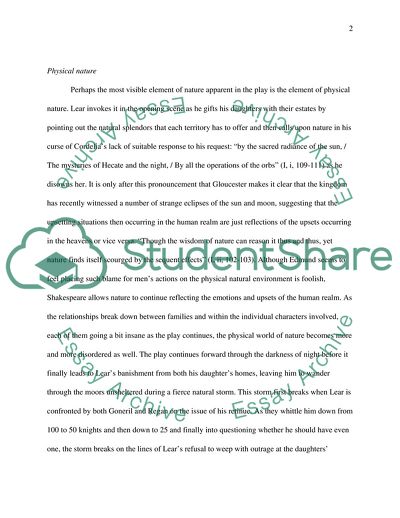Cite this document
(The Nature of King Lear Case Study Example | Topics and Well Written Essays - 1750 words, n.d.)
The Nature of King Lear Case Study Example | Topics and Well Written Essays - 1750 words. https://studentshare.org/literature/1746198-king-lear-essay-for-shakespeare
The Nature of King Lear Case Study Example | Topics and Well Written Essays - 1750 words. https://studentshare.org/literature/1746198-king-lear-essay-for-shakespeare
(The Nature of King Lear Case Study Example | Topics and Well Written Essays - 1750 Words)
The Nature of King Lear Case Study Example | Topics and Well Written Essays - 1750 Words. https://studentshare.org/literature/1746198-king-lear-essay-for-shakespeare.
The Nature of King Lear Case Study Example | Topics and Well Written Essays - 1750 Words. https://studentshare.org/literature/1746198-king-lear-essay-for-shakespeare.
“The Nature of King Lear Case Study Example | Topics and Well Written Essays - 1750 Words”. https://studentshare.org/literature/1746198-king-lear-essay-for-shakespeare.


